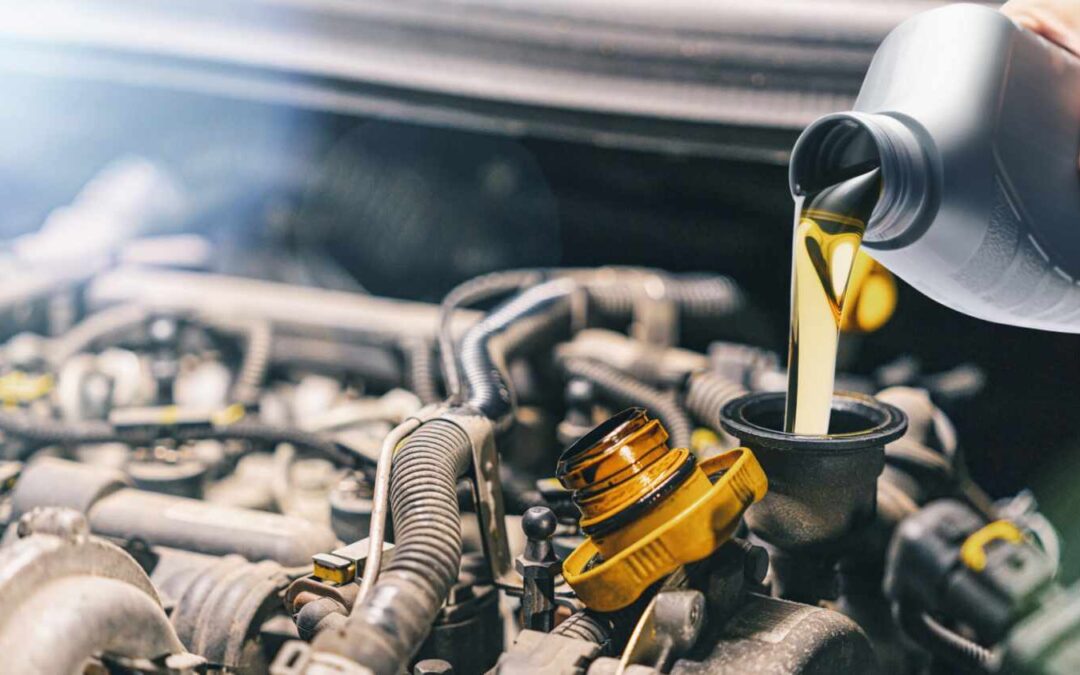Welcome to All Around Auto Repair’s blog! Today, we’re diving into a crucial aspect of vehicle maintenance that often goes unnoticed until there’s a problem: car fluids. These fluids are the lifeblood of your vehicle, ensuring everything from engine performance to safety. Understanding what these fluids do and how to maintain them can save you from costly repairs and keep your car running smoothly.
Why Car Fluid Maintenance is Essential
Fluids in a car perform various critical functions, including lubricating moving parts, providing hydraulic assistance, cooling components, and more. Neglecting them can lead to reduced performance, higher fuel consumption, and even catastrophic engine damage. Regular checks and maintenance of these fluids can prevent such issues and extend the life of your vehicle.
Types of Car Fluids and Their Roles
- Motor Oil: This is perhaps the most well-known and crucial fluid. Motor oil lubricates the engine’s moving parts, reduces friction, prevents overheating, and helps keep the engine clean by preventing buildup of sludge and varnish.
- Coolant (Antifreeze): Coolant circulates through the engine and radiator to prevent the car from overheating in summer and freezing in winter. It also has corrosion inhibitors that protect the engine and radiator from rust and corrosion.
- Transmission Fluid: This fluid lubricates the components of your vehicle’s transmission for optimum performance and longevity. It’s essential for both automatic and manual transmissions, ensuring smooth gear shifts and operation.
- Brake Fluid: Brake fluid is a type of hydraulic fluid that helps transfer the force created when you press the brake pedal to the brake pads. This pressure allows the brake pads to clamp onto the rotors, slowing down your car. Because it’s hygroscopic (it absorbs moisture), it needs to be replaced periodically to ensure safety.
- Power Steering Fluid: This fluid helps your vehicle’s steering system perform smoothly and effortlessly. It transmits the power in power steering, allowing you to turn the wheel easily.
- Windshield Washer Fluid: Though not as critical for your vehicle’s mechanical function, windshield washer fluid is essential for your safety. It helps keep the windshield clear of dirt, debris, bugs, and frost.
Maintenance Tips for Car Fluids
Regular Checks: The first step in fluid maintenance is regular checks. For most vehicles, checking fluids monthly and before long trips is advisable. This includes checking oil levels, coolant levels, brake fluid, and transmission fluid. Most of these can be done easily using dipsticks or reservoir indicators in your vehicle.
Follow Replacement Intervals: Each fluid has a different life span. For instance, engine oil typically needs to be changed every 3,000 to 5,000 miles, depending on the type of oil and your vehicle’s make and model. Transmission fluid might need replacement every 50,000 to 100,000 miles. Always refer to your vehicle’s owner manual for specific guidance.
Use the Right Type of Fluids: Always use the type and grade of fluid specified by the vehicle manufacturer. Using the wrong type can lead to inefficient operation and damage to the system.
Professional Checks: While many fluid checks and changes can be done at home, some require professional help. For example, if your brake fluid needs to be flushed, it’s best to take your vehicle to a professional like All Around Auto Repair, as this process can be complex and requires special tools.
Watch for Leaks: Any sign of a fluid leak should be addressed immediately. Leaks can lead to low fluid levels that may cause severe damage to the vehicle’s components.
Maintaining your vehicle’s fluids is not just about extending the life of your car; it’s about ensuring safety, reliability, and efficiency. At All Around Auto Repair, we understand the importance of proper vehicle maintenance and are here to help ensure that your car keeps running smoothly for years to come.
Remember, maintaining your car’s fluids is a relatively simple aspect of car care that offers significant benefits. Keep up with your maintenance schedule, and your car will take care of you in return. If you ever have any questions about your car’s fluids or need professional service, don’t hesitate to contact us or visit our shop. Safe travels!


